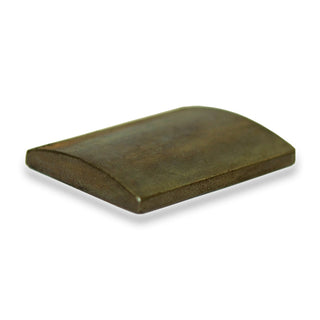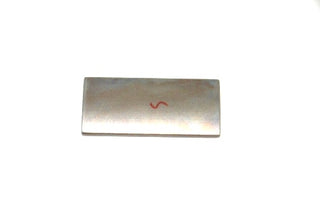Phosphorus (P)
Phosphorus coatings create an inert protective barrier for the surface of the magnet. Phosphorus coated magnets are a good choice for outdoor applications and where exposure to the weather is unavoidable. Phosphorous magnets are usually used in sensors and alarms, as well as by the security and surveillance industries. Phosphate coated Neodymium magnets are typically grey or dark grey similar to the appearance of a Ferrite magnet.
Neodymium magnets are the most powerful form of permanent magnet currently available. Rare Earth magnets are formed through a process known as sintering. The powdered rare earth elements are pressed and heated whilst being exposed to a magnetic field. What results is a strong magnet that is porous in nature.
Unfortunately Neodymium magnets are highly reactive and this porous texture leaves Neodymiums susceptible to corrosion.
It is necessary for all Neodymium magnets to be coated to protect them from oxidising and corroding in ambient humidity. There are a number of coatings available with Nickel being the most common.
Phosphorus is used on Neodymium magnets for the purpose of passivation and to assist in the prevention of chemical reactivity. This coating helps tackle short-term exposure to corrosive elements and applications with low protective requirements.
Choosing the best coating
There are almost a dozen different magnet coatings available on the AMF website. The range has been selected to cover coatings for different types of applications. In many cases the magnet coating has dual benefits.
A good example of this is the stainless steel casing of many pot magnets. Not only does the metal case protect the magnet inside from the physical impact of attaching and removing the magnet. The case also enhances the power of the magnet.
Another example can be found in rubber coated magnets. The rubber provides excellent protection for the magnet from corrosive elements and physical impacts. Additionally the rubber protects the magnet from shifting whilst in use or damaging the underlying surface.
Our Knowledge Base page outlines the full range of coatings available, along with a helpful table outlining their attributes.
Custom magnets
There are currently only four Phosphorus coated magnets available as part of our standard range. There are limited applications where phosphorus coated magnets are required and they are therefore less readily available on the retail market.
Custom magnet orders are a great way to get the exact magnet you are after. If you require a Phosphorus coated magnets in a particular size please don’t hesitate to contact us. We have fantastic long-term relationships with our factories and can source just about any magnet you require.
Our friendly team is available to assist you with any questions you may have on the ordering process. Magnets can be customised to be just about any size, any coating and any grade. You can even request your magnets be treated to perform at higher operating temperatures than standard Neodymium magnets are capable of.
Not enough in stock. Please choose a lower quantity.
Minimum order quantity is 1
Not enough in stock. Please choose a lower quantity.
Minimum order quantity is 1








